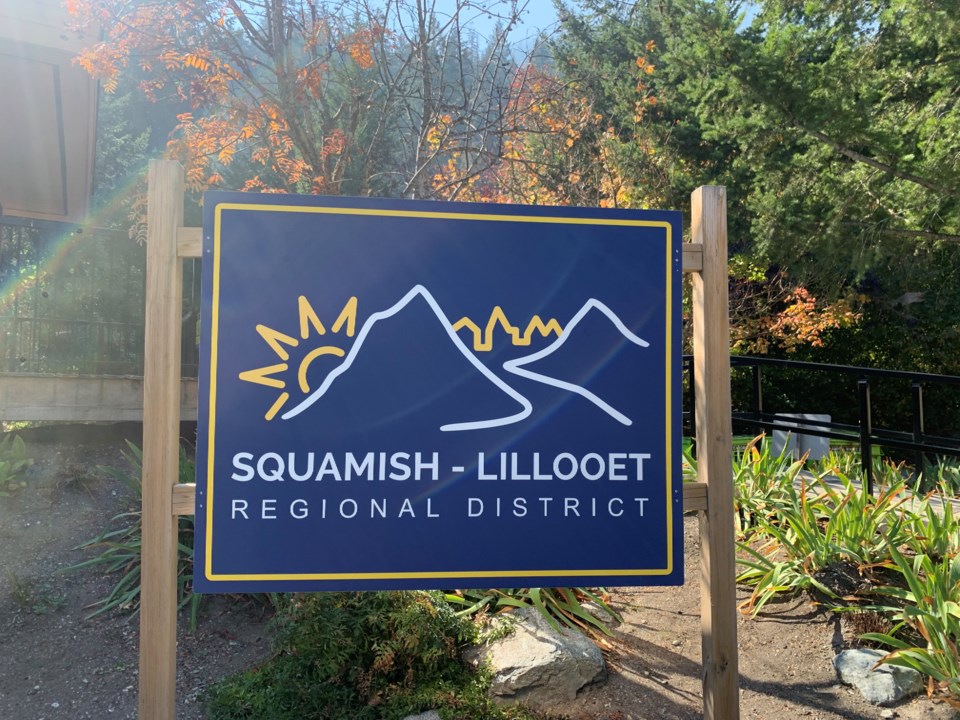A whole raft of fees charged by the Squamish-Lillooet Regional District (SLRD) are going up, after the regional district board voted to approve a staff recommendation that plays catch-up after 10 years of no increases.
The board voted unanimously at its Jan. 24 meeting to approve an update to the Development Approval Information, Fees and Notification Procedures Bylaw with increased fees that are mostly going up by 25 per cent—and in some cases, by much more.
The fee increases cover a wide range of applications: public hearings, zoning amendments, temporary use permits, some development permits (but not all of them), variances and more.
In a presentation to the board, the SLRD’s director of planning and development services, Kim Needham, explained the fees were a decade behind rising costs and inflation.
“We set the fees 10 years ago, and we have now looked to increase the fees with the rate of inflation,” she said.
To do that, staff took into account processing times, advertising costs, inflation pressures, and comparisons with other regional districts (specifically the Thompson-Nicola Regional District).
“We came up with a 25-per-cent increase in fees to represent inflation for most fees,” Needham said, adding fees that were updated more recently than 2014 will go up by 12.5 per cent, and fees for campgrounds by five per cent.
Following the increase as approved on Jan. 24, Needham said the new bylaw will automatically increase all fees by 2.6 per cent on an annual basis going forward, “so that we don’t fall behind again.”
Area D Director Tony Rainbow asked why the SLRD chose 2.6 per cent, with Needham responding the number reflects the average inflation rate of the last 10 years, and can be changed in the future if 2.6 per cent ends up being off the mark.
The proposed 25-per-cent increase is in line with the overall inflation rate between 2014 through to the end of 2023, according to the staff report, which said the rate was actually 25.99 per cent, according to the Bank of Canada.
Processing and staff time was another factor behind the increase, with the staff report noting when the fees were last calculated in 2014, the rate for staff time was $75 per hour, while in 2024 and beyond, it was recommended to be set at $125 per hour “to accurately reflect the cost of staff time.”
Area B Director Vivian Birch-Jones queried whether there were savings over the last few years due to more people working from home, and was told while that was true, those savings in mileage and room rental were calculated as “in-kind costs,” and the 25-per-cent blanket increase was the average between savings and rising costs.
A full comparison of the fee changes is available on the SLRD website, covering all the associated increases. The majority of development permit applications will not increase right now, “in order to keep these permits accessible to the general public, encouraging compliance and adherence to guidelines.”
In some cases, the 25 per cent didn’t cut it. A handful of fees which are additional costs to zoning amendment-related applications saw some of the highest increases well above 25 per cent, with the public hearing fee going from $1,000 to $3,290, a waiver for a public hearing fee going from $600 to $2,990, and a rezoning requiring an amendment to the Official Community Plan (OCP) going from $500 to $1,750.
A communications official from the SLRD told Pique the fees associated with public hearings are to cover large advertising costs, $300 room rental costs, and 14 hours (on average) of staff time, while the rezoning increase is required to cover staff time. “If we applied the 25-per-cent increase, it would have covered only a very small portion of the staff time required,” they said.
As the changes were adopted at the Jan. 24 meeting, they are now in effect.




